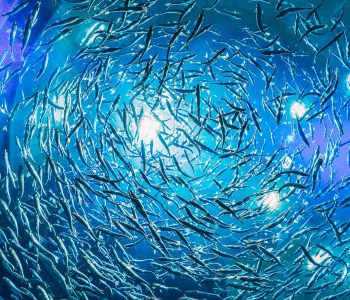Under the framework of the PISCIBIEN project, a research group at the UCA (University of Cádiz) has concluded that phytoadaptogens can improve stress responses in fish.
“The Development and Implementation of Innovative Strategies for Improving the Welfare of Fish at Critical Points in Aquaculture Farming” (PISCIBIEN) was a project coordinated and led by theAquaculture Cluster-CETGA, which received funding from the Next Generation EU and was part of the Recovery, Transformation, and Resilience Plan (PRTR) managed by the Ministry of Agriculture, Fisheries and Food (MAPA) under RD. 685/2021.
This initiative involved the Research Group in Aquaculture at IU-ECOAQUA of the University of Las Palmas de Gran Canaria (ULPGC), as well as the Scientific and Technological Park Foundation of ULPGC, the University of Cádiz (UCA), the Autonomous University of Barcelona (UAB), the Complutense University of Madrid (UCM), and the Murcian Institute of Agricultural and Environmental Research and Development (IMIDA).
The research groups focused their efforts on species such as sea bass, rainbow trout, sole, gilthead sea bream, and croaker. According to a statement issued by UCA:
“They focused on improving the welfare of fish at critical stages of the production process: postlarval mortality, fattening and transport, vaccination, hypoxia episodes, pre-slaughter, and slaughter. In all these points, the stress, health, and welfare responses of these animals were analyzed.”
Regarding this matter, the UCA declared that their research team specializing in “Applied Animal Physiology in Aquaculture” partnered with a private sector enterprise to carry out an “assessment of phytoadaptogen usage for enhancing the well-being during instances of both short-term and long-term stress.” Notably, they emphasized a particular characteristic of phytoadaptogens, which is their capacity to “soothe” the organisms. Specifically, it was noted:
“They offer several benefits compared to conventional synthetic compounds, including the absence of the need for veterinary prescriptions, fewer adverse side effects, and a reduced environmental impact. Furthermore, the use of sedative substances to mitigate stress responses in typical aquaculture scenarios is a widely adopted practice, underscoring their potential to enhance the well-being of cultivated fish.”
This study employed juvenile sea bass as the test subjects. To achieve this, the sedative and anesthetic properties of the prototypes were analyzed for immersion application, aiming to induce mild sedation, with the objective of enhancing the handling and transport processes while safeguarding the fish’s well-being.
Following this, the UCA research team carried out transport simulations of varying durations and established criteria for primary and secondary stress responses, as well as the regulation of energy resources within the liver. Consequently, the results revealed that:
“…the chosen prototype effectively moderates stress responses in a beneficial manner during transport lasting up to three hours; however, beyond that duration, such as in the case of a 6-hour transport, it only delays the typical stress reactions, prompting a recommendation for its reapplication.”
In conclusion, it was noted that the incorporation of the phytoadaptogen-based prototype “enhanced certain somatic indicators in comparison to individuals fed with the control diet, particularly under conditions of high population density. Fish fed with the supplemented diet demonstrated greater adaptability during a 3-hour transport, resulting in a reduction in the intensity of primary and secondary stress responses.”
You may also like to read: “Wine & beer residues as nutritional elements in aquaculture”
Source: University of Cádiz (November 1, 2023): “UCA Researchers Present Their Conclusions from the ‘Piscibien’ Project.” uca.es
